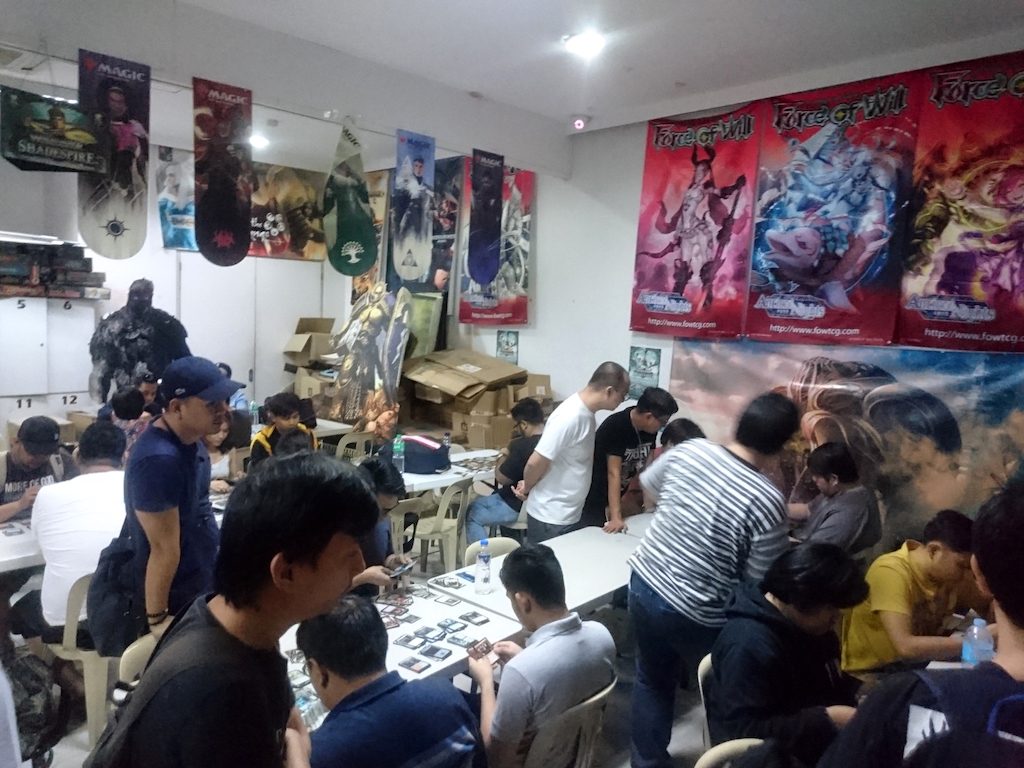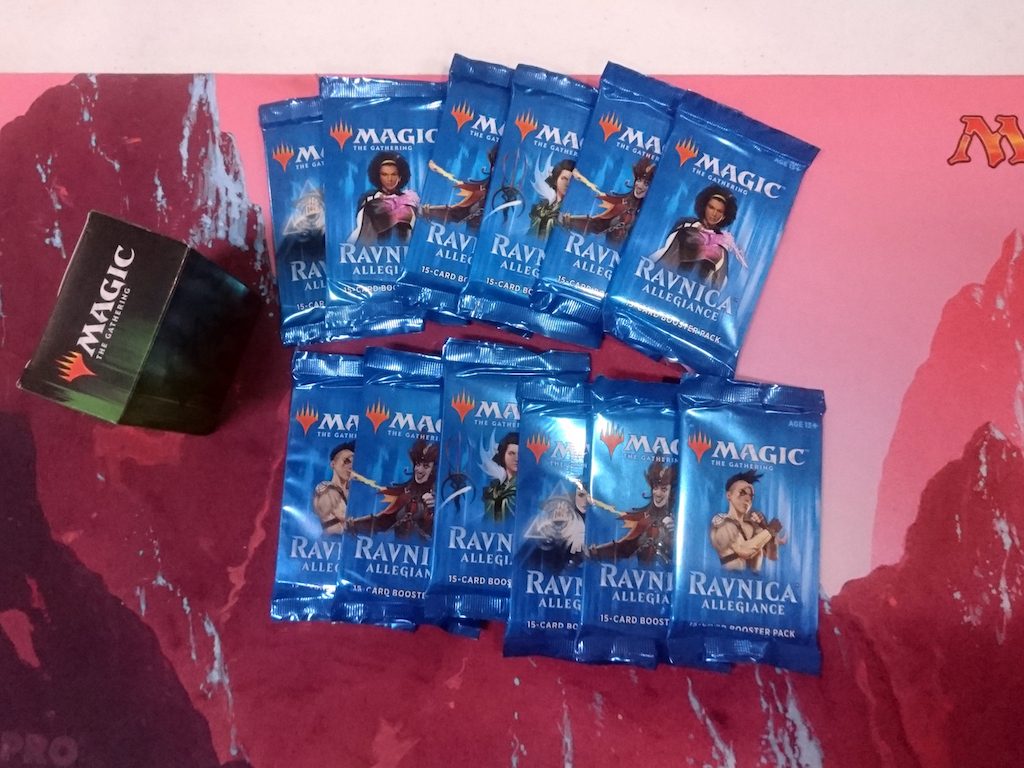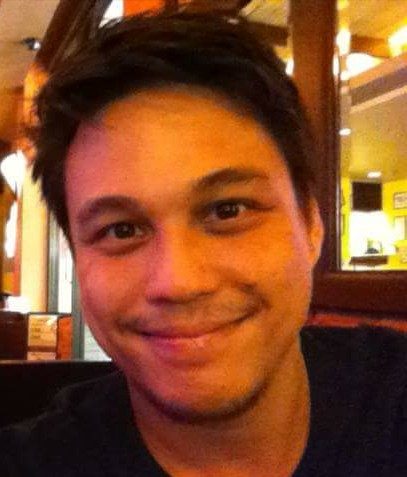SUMMARY
This is AI generated summarization, which may have errors. For context, always refer to the full article.

It’s almost midnight, and while most of the shops at Centris Walk in Quezon City have closed, one store remains open. The people inside that store, Neutral Grounds, are abuzz with excitement and anticipation. The source of that excitement: boxes of new Magic: The Gathering cards, which will be made available to pre-registered players at the stroke of midnight.
In the meantime, people ease the wait for the new Magic cards by, well, playing current Magic cards. Friendly, if occasionally loud, banter emanates from the store. Professionals on their way home from nearby offices throw weird glances at this hive of activity.
This is a prerelease tournament for the game’s latest set, Ravnica Allegiance. On weekends prior to the release of a new set, gaming shops will hold special preview tournaments. Certain shops, like Neutral Grounds in Centris, will stay open past midnight to give players an even earlier preview.
Outsiders may see the game as bewildering, its scene impenetrable. But the opposite is actually true: Magic is one hell of an ice-breaker. Within 5 minutes of entering the store, I meet several friends — and their friends automatically become my friends, too.
According to Freddie Tan, president of Ludus, the official distributor of Magic: The Gathering in the Philippines, the game — as well as shops — gives players the opportunity to interact without anxiety or awkwardness.
“Let’s say you go into a store, and you see someone into the same thing you are,” he says. “You automatically have something to talk about. (You can say) ‘Hey, you got great cards!’ even if I don’t know you. I can strike a conversation and you wouldn’t feel weird.”
“It’s not like someone on the train who would comment ‘Hey, I like what you’re wearing.’ That would be weird,” he adds, laughing. “If you’re in a hobby shop and I compliment you on your deck, you wouldn’t feel weird.”
Local History
Seeing players line-up at midnight isn’t such a strange thing when you consider the fact that Magic has had a thriving local scene since the game first arrived in the Philippines in 1994.
“The history of Magic [in the Philippines] starts with a shop called Total Rec,” says Freddie. “Which was part-owned by my wife, Des.”
The shop initially focused on comics and basketball cards, but in 1994, a customer requested for this new game that few people had heard of. “One customer said, ‘Hey, bring in Magic cards.’ And we didn’t know what Magic cards were at the time — what is that? Magic, with rabbits coming out of hats?” Freddie says, laughing.
Magic was already taking off Stateside — the first 3 printings (Alpha, Beta, and Unlimited) of the game sold-out quickly. The initial batch of cards that arrived here, which were part of the Revised print run, were also well-received. “The shop ordered it, and they realized the box came with a lot of contents,” Freddie remembers. “Who’s going to buy all this? But someone ordered it, and the shop brought it in. It got sold right away.”
Total Rec didn’t have distribution rights to the game, and other shops soon began selling Magic as well. The timing was perfect for a new pop culture phenomenon to arrive. “Around that time, comics were on their way down,” says Freddie. “The comics bubble burst, so the timing of Magic actually saved a lot of stores, because they were able to transfer to selling Magic.”
Total Rec turned into Gaming Circles, which finally became Neutral Grounds. In 1999, another business lost the distribution rights to Magic. The game’s publisher, Wizards of the Coast offered distribution to Neutral Grounds. At the time, Neutral Grounds’ main focus was Warhammer and its scifi counterpart Warhammer 40k.
“We were playing in a different court, and then suddenly the ball got passed our way!” Freddie says about getting the opportunity to distribute the card game, which at the time was already taking the world by storm.
In 2015, Freddie started Ludus to handle the distribution side of the business. While he is no longer part of Neutral Grounds, he maintains a prominent presence within the gaming community, both in conventions and online.

A dedicated following
The early efforts of Neutral Grounds were instrumental in the formation of the country’s Magic: The Gathering scene. But Freddie nonetheless maintains that the grassroots efforts of small shops and players are key to the game’s success.
“Even before Magic was officially distributed in the Philippines, other stores and some players were really involved in community-building,” he says. “Part and parcel of marketing and selling the product is creating that community. It’s not the sole responsibility of one entity.”
Freddie mentions that while the larger events in malls can spark interest, it’s still the smaller interactions that build the community. He says: “They (potential players) see Magic and think ‘Hey, this looks like fun.’ But the intro point is still individual people teaching new players one-on-one.”
“Exercise for the mind”
As the distributor of Magic, Ludus can promote codes of conduct within stores. “Stores — including Neutral Grounds — have to be open to everyone,” says Freddie. “We don’t want to see discrimination, we don’t want to see bullying. We try to educate the stores, educate the players. That’s our role.”
Thanks to that openness, tabletop gaming has become a bit more mainstream — just look at the proliferation of gaming cafés — but there is still some misunderstanding about gaming.
“People are more enlightened now, but there’s still an attitude of ‘You’re wasting your time, that’s just for kids,’ not realizing that tabletop gaming just as valid a form of entertainment as watching a movie, playing golf, joining a triathlon,” Freddie says. “It’s a hobby. It just so happens that gaming is nerdier. Tabletop gaming is a subset of play… and playing is a learning experience. it’s a learning experience in a safe and controlled environment.”
“When people engage in physical exercise, people don’t question its benefit. The way I view Magic: the Gathering, is it’s exercise for the mind,” he concludes. – Rappler.com

Iñigo de Paula is a writer who lives and works in Quezon City. When he isn’t talking about himself in the third person, he writes about pop culture and its peripheries.
Add a comment
How does this make you feel?
There are no comments yet. Add your comment to start the conversation.